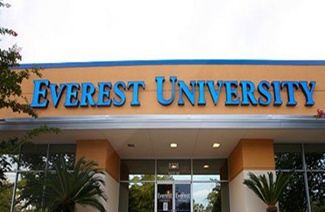综合写作:
| Topic议题 | ||
| 北美人来自哪儿-欧洲还是亚洲 | ||
| Reading | Listening | |
| Thesis总论点 | 来自欧洲 | 来自亚洲 |
|
Sub-point 1 分论点1 |
北美spear points与欧洲像都是大,尖 spear points were closely resemble the Europeans. |
独立发展为大而锋利的矛头,因为两地有大型哺乳动物。 They probable developed independently. There were big mammals in both areas so that they have to utilize the big sharp spear points to protect themselves. It seemed to be that after the first Asian arrived, they developed the big sharp spear points on their own. |
|
Sub-point2 分论点2 |
北美remains of bones and skull 与欧洲相似 | 一个头颅的例子可能是意外,而且更多例子表明北美人和亚洲人相似。The skull was just one single example to suggest that North American were came from Europe. It could be an exceptional, and there were more evidence about bones that north American were similar with Asian. |
|
Sub-point3 分论点3 |
大西洋在以前好跨越 |
没有证据表明欧洲人会造船钓鱼,他们不可能穿越大西洋。There were no evidence that European had any experience of boating or making fishing net. Though Atlantic was shorter at that time, it was still a long and dangerous journey. The European could not survive the journey at all. |
独立写作:
Do you agree or disagree with the statement: People often buy products not because they really need them but because other people have them.
In recent decades, international trades and improving living standards have largely contributed to the large scale of purchase of products. The reason behind this commercial behaviors either comes from individual’s needs for them or from envy of those who have already possessed them. From my perspective, the essential motive behind the scene would be for individual purposes.
Admittedly, people would sometimes buy the products because friends or classmates have them. it is not rare to see that after a high school studens has bought a newly-released iPad and bring it to the class, other friends would be at first gathering around him to witness how the product runs and then beg their parents to buy the one for them. For them, buying the newest generation iPad might bring them attention from others, which has nothing to do with the functionality of product. However, on balance, this only happens for within a small number of people, especially young students and women. For other consumers, they would be wise in choosing what they want. In this regard, more people are buying products out of their needs.
To begin with, for college students, they are inclined to buy what they really want. In other words, due to limited living expenses monthly, most of them could not buy whatever they want. According to the recent survey conducted on Sina Weibo, after polling 500 students in universities from Beijing, most of them claim that each month they have to manage their living expenses within 1500 yuan. Not only does this sum of money have to cover meal bills, clothing and fees for textbooks, but it also have to deal with emergencies. Under this circumstance, normally they have to make a plan for money use, and try to avoid buying things with little practical use. This explains why college students in Beijing rarely buy the newest generation of iPhone or pay for monthly travel, and they have to put the money either on textbooks or living necessities.
In addition, male adults are another group of consumers who make purchase based on real needs. For example, for those who decide to buy a car, the motive is mostly because the car could help family member to tackle emergencies or drive them to the suburb for a relaxing weekend. Also, for those who decide to equip with a new Macbook, the motive might have something to do with work requirement, which asks them to process the data faster and more accurately. Moreover, for those who deicide to spend money on applying for MBA in business school, the motive might be related to career development. A wider caree insight cultivated from MBA would give them a broader window of success in the work. Seeing from this, it is the utilitarian purpose that makes male adults buy real products.
To sum up, although it is normal to see some customers making impulsive purchase since, most of the rational customers would buy products out of their needs.









